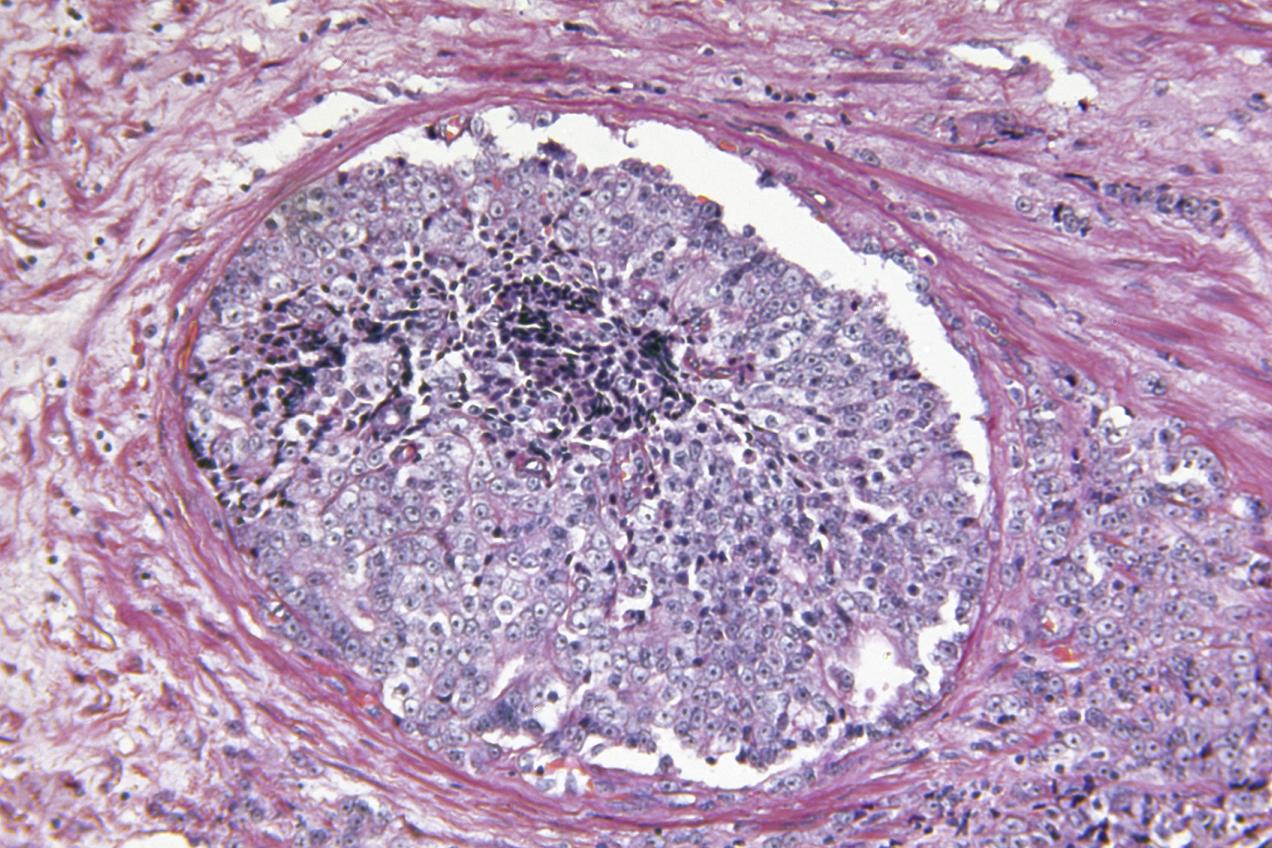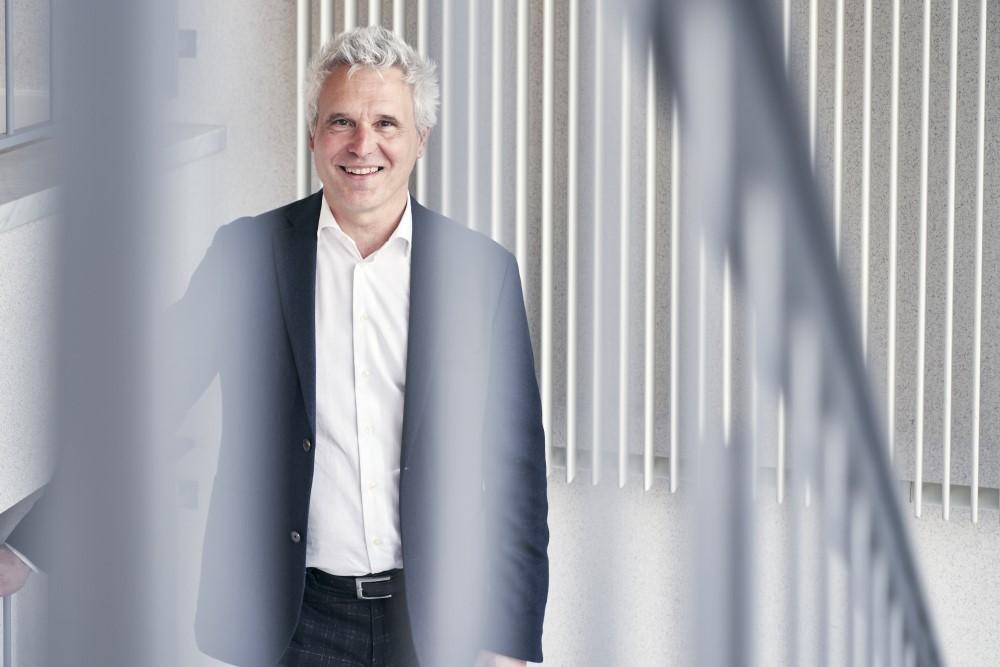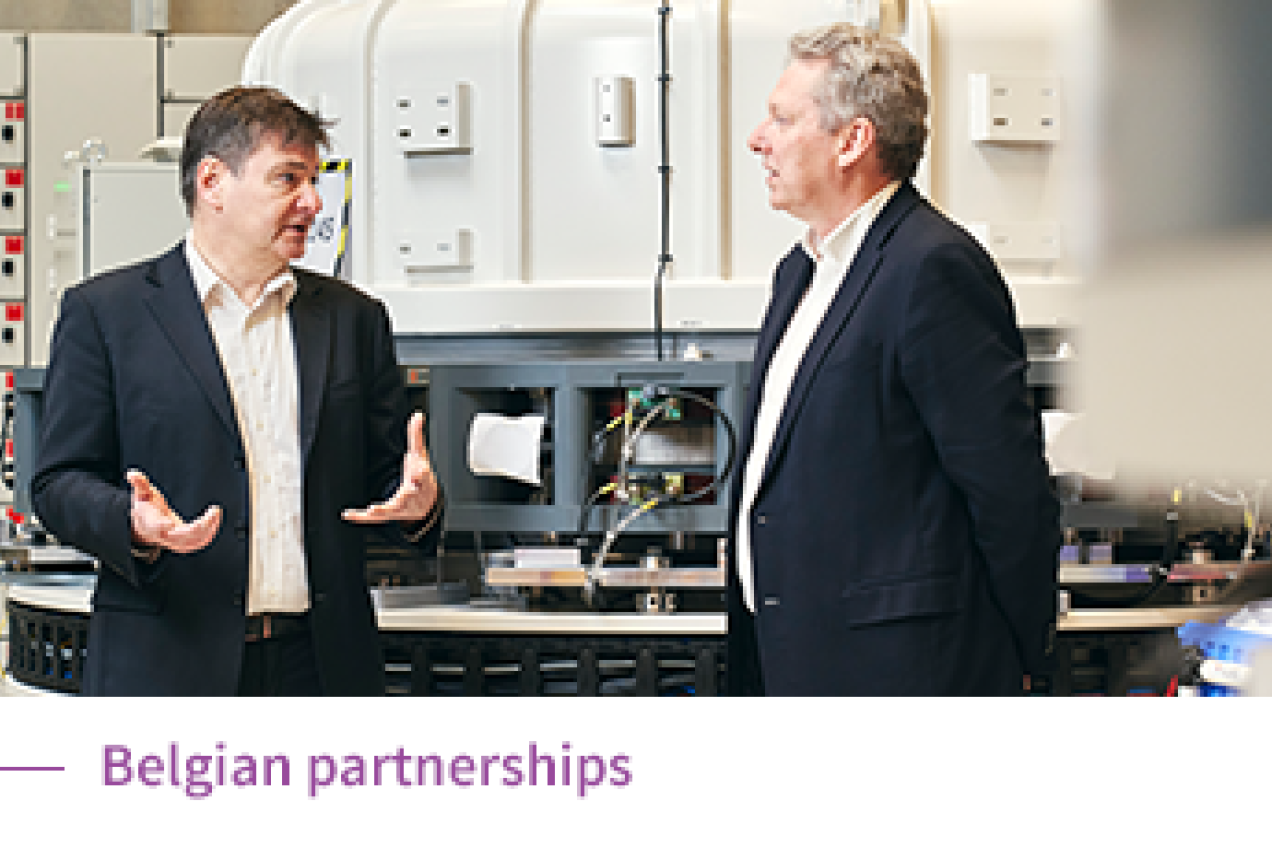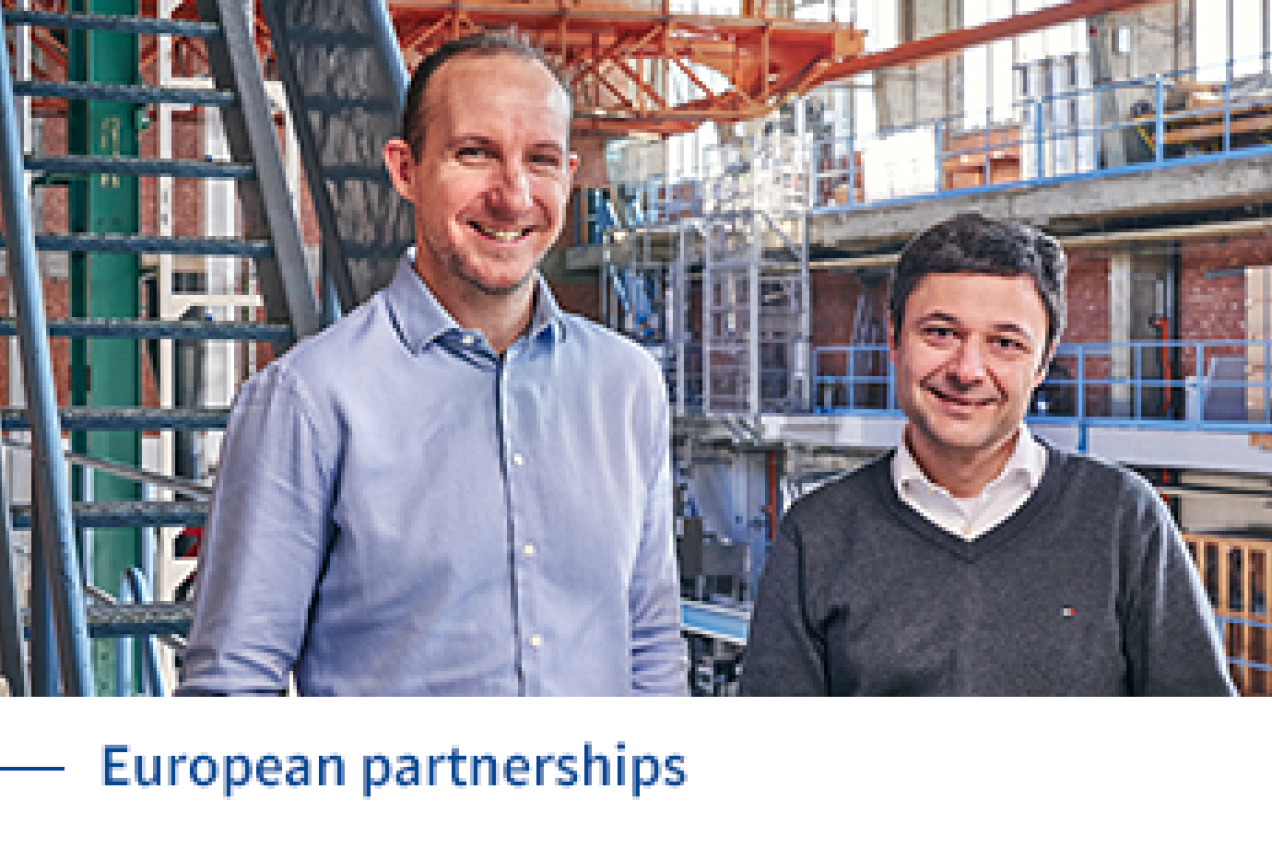The fight against cancer is gaining momentum
SCK CEN shares knowledge with Canadian startup for rapid launch of production line
The nuclear research centre SCK CEN and the Canadian start-up POINT Biopharma have concluded a technology transfer licence agreement. This agreement is POINT Biopharma’s one-way ticket to a rapid start-up of lutetium-177 production. This radioisotope is very promising for the treatment of prostate cancer, which is responsible for 90,000 deaths in Europe every year.

Radioisotopes can make the difference not only in medical imaging but also in targeted cancer therapies. That dynamic did not go unnoticed by Allen Silber and Joe McCann. Together, these men founded POINT Biopharma at the height of the pandemic. This Canadian start-up aims to be a driving force in the development of therapeutic radioisotopes. The company’s primary focus will be lutetium-177, a promising radioisotope for the treatment of prostate cancer, among other things. The need for this is expected to increase exponentially: from 16,000 patients in 2020 to 138,000 patients in 2026.
Successful roll-out of cancer treatment depends largely on operational reliability. “Patients need the assurance that their treatment can continue. In order to do this, the market must have the assurance that no link in the supply chain is broken: from raw materials to finished radiopharmaceuticals. In the case of medical radioisotopes, the time aspect also comes into play. It’s a race against time to get them to the patient,” says Koen Hasaers, Director of SCK CEN’s cancer control programme NURA. Supplies need to be secured.
The Canadian start-up therefore decided to focus on every facet of the chain. Among other things, the company arranged for access to the essential basic raw material, they will purify the radioisotope itself, and then link it to a carrier molecule. However, that vision must not slow down the pace at which it plans to start production. For this reason, POINT Biopharma is engaging partners with knowledge and experience. SCK CEN is one of these. SCK CEN will share the production method it has developed for pure lutetium-177 with the Canadian start-up.

Trust
Lutetium-177 is created by bombarding ytterbium-176 with neutrons. The irradiated ytterbium-176 is then treated by a radiochemical process to separate and then purify lutetium-177. “The separation of lutetium-177 proceeds in several steps. We developed a technique that achieves high purity with minimal steps. This makes our separation technology simultaneously efficient and industrially scalable. In a licence agreement, we are now sharing that technology with POINT Biopharma,” Hasaers says. The willingness to subscribe to this licence agreement is a substantial recognition for SCK CEN. “POINT Biopharma is taking the risk that the technology provided may affect its business model. This agreement demonstrates the trust and appreciation that these external partners have for SCK CEN, which is a result of our extensive professional knowledge and experience in the nuclear domain.”
Far-reaching collaboration
The collaboration goes beyond a mere technology transfer. “If demand exceeds their supply, we will step in. Indeed, along with the National Institute for Radioelements, we will also establish a Belgian production line,” concludes Hasaers. Also, the two partners do not rule out future collaborations for other emerging radioisotopes.
Belgian production line
The innovative production method from SCK CEN also forms the basis of a Belgian production line. This large-scale production line will be set up at the initiative of SCK CEN and the National Institute for Radioelements, who have been great partners in the battle against cancer for many years. “By helping to increase supply, they are providing numerous cancer patients with access to effective treatment and thus life-saving care,” says Eric van Walle, Director-General of SCK CEN. The production facility will be on the nuclear research centre SCK CEN’s site in Mol (Belgium), while IRE will actually bring the radioisotopes to the customers. The the research center will receive funding from the Recovery and Resilience Plan (RRF) to perform the research and development necessary to enable the production line.


